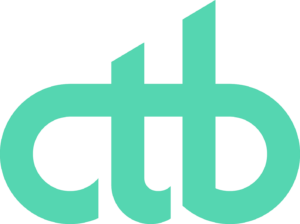Fortunately, financial literacy has become a top priority for many educators, and there are more resources available than ever before, such as free tools, podcasts, books, and videos. Social media is another platform that financial influencers use to pass on their knowledge and their own experiences of dealing with debt. The following three content creators of color speak candidly with their audiences to share the wealth.
As originally posted in OurMoneyMatters.com
Many Americans struggle with essential financial understanding like how to pay off debt, invest, or save for their first home. A 2018 FINRA study found that financial capability, stability, and confidence have failed to improve since the last survey conducted in 2015. Over 53% of adults say thinking about their financial situation makes them anxious and 44% state that discussing their finances is stressful. Even more detrimental, roughly 78% of adults live paycheck to paycheck, and every three in five adults do not maintain a budget. Most concerning is that people ages 18- to 34-years-old had the sharpest drop in their ability to answer four of five financial literacy questions correctly, declining from 30% in 2008 to 17% ten years later.
Financial literacy means understanding concepts including saving, investing, and debt, leading to an overall sense of financial security and reliability. Financially literate consumers manage Money with higher confidence, keep their debt low, and better prepare themselves for retirement. These consumers also have a better chance of handling the highs and lows of their financial lives by understanding how to manage issues that may arise.
And while the average American lacks sophisticated financial knowledge, African Americans lag that of the U.S. population as a whole. On average, African American adults answered 38% of the P-Fin Index questions correctly. Just 28% answered over one-half of index questions correctly, with only 5% answering over 75% correctly.
Fortunately, financial literacy has become a top priority for many educators, and there are more resources available than ever before, such as free tools, podcasts, books, and videos. Social media is another platform that financial influencers use to pass on their knowledge and their own experiences of dealing with debt. The following three content creators of color speak candidly with their audiences to share the wealth.
1. Dasha Kennedy
Kennedy is a financial educator and organizer who has a decade of experience as an accountant and default counselor. She started her Facebook group in 2017 when she realized that she was not as prepared as she should have been for financial setbacks. Now Dasha uses her website, Facebook group, and Instagram platform (@thebrokeblackgirl) to uplift women and help them get onto a path of financial wellness.
https://www.thebrokeblackgirl.com/ She provides coaching services, access to digital communities, and a combination of free and paid resources on her website. She has also written a book called “How Not To Be The Broke Black Girl: 30 Day Step By Step Financial Detox,” which holds a five-star review. Kennedy has successfully helped over 70,00 black women increase their financial literacy.
2. Steven Hughes
Instagram Influencer Steven Hughes (@stevenmhughes) is a financial educator who also practices Reiki (a Japanese form of alternative medicine called energy-healing). Hughes founded and currently acts as the Executive Director of a non-profit called Know Money which helps Black college students create a legacy of financial literacy through workshops and actionable content. He started his organization after getting into serious debt during college and vowing never to let himself get into that situation again. You can learn more about his story in this interview. Know Money helps college students improve their money mindsets by avoiding common pitfalls such as signing up for too many credit cards or falling for predatory lending practices.Through strategic partnerships and culturally responsive workshops and events, they address the unique challenges and social pressures today’s college students of color face. Hugues also holds financial wellness talks at corporations and hosts a “Money Monday” segment that airs on CBS-WLTX.
3. Brandyn Rodriguez
Brandyn’s mantra is faith, family, and financial freedom. As a married mother of two children, she and her husband decided they were tired of their family being in an unhealthy financial position. The couple put together a plan to pay off their entire $137,000 of debt within five years and began encouraging and empowering others to do the same by sharing their story. Rodriguez continues to use her Instagram platform (@debt_free_2020 to help others gain financial freedom. Brandyn also emphasizes the importance of the whole family understanding financial concepts, including teaching teenagers the basics of budgeting. She dives in deep to explain some of the least understood ideas, such as compounding interest rates, payback timelines, and defining accelerated debt repayment methods such as avalanches vs. debt snowballs.
In conclusion, all Americans need to understand how to get their finances in order so they can build a better future for themselves and their families. And education must start as young as possible. For example, the biggest mistake that many college graduates make is to start their professional life burdened with debt because they don’t budget or understand the liability of not paying their credit cards off in time. Graduates begin earning income from their first job to pay off loans rather than saving for their first car or house. Fortunately, there are many free tools and resources which can help get them on track. We all have the power to take financial control, but we must take the first step. Don’t waste another minute stressing about finances. You can do something about it.

